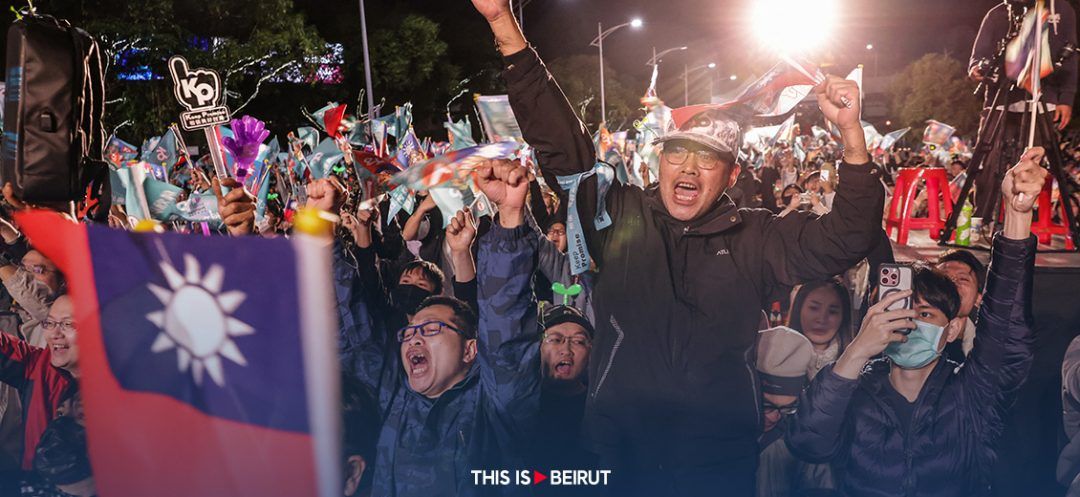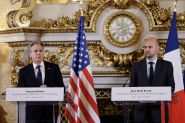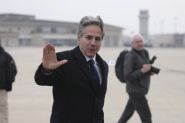- Home
- Middle East
- US Lauds Taiwan Elections as China Opposes 'Independence'

©(Photo by I-Hwa CHENG / AFP)
China has warned Taiwan against any inclination towards independence following the election of pro-independence candidate Lai Ching-te on Saturday, January 13. However, both the European Union and the United States have congratulated the new president.
The United States on Saturday congratulated Taiwan's president-elect Lai Ching-te, but maintained that Washington does not support independence for the self-ruled island claimed by Beijing.
Asked by reporters for Washington's position on Taiwan, where independence-leaning Lai has pitched himself as a defender of the island's democratic way of life, US President Joe Biden said: "We do not support independence."
In a statement, Secretary of State Antony Blinken saluted Lai on his victory in Saturday's pivotal vote and hailed the "robust democratic system and electoral process" of the self-ruled island.
Blinken added that Washington is "committed to maintaining cross-Strait peace and stability, and the peaceful resolution of differences, free from coercion and pressure."
The European Union's foreign policy chief also congratulated Taiwan on the election in a statement which did not mention Lai's victory.
In a New Year's address, Chinese President Xi Jinping had said the "unification" of Taiwan with China was "inevitable".
And in the run-up to the vote, Beijing warned that Lai was a "severe danger" who would threaten peace by following the "evil path" of independence.
In a statement issued after Lai emerged as the winner, Beijing's Taiwan Affairs Office spokesperson Chen Binhua said in a statement that the vote "will not impede the inevitable trend of China's reunification", according to state news agency Xinhua.
Beijing's stance on "realizing national reunification remains consistent, and our determination is as firm as rock", he said, adding that "Taiwan is China's Taiwan".
He said Beijing "firmly oppose(s) the separatist activities aimed at 'Taiwan independence' as well as foreign interference".
The election was watched closely by both Beijing and Washington, Taiwan's main military partner, as the two powers tussle for influence in the strategically vital region.
Khalil Wakim, with AFP
The United States on Saturday congratulated Taiwan's president-elect Lai Ching-te, but maintained that Washington does not support independence for the self-ruled island claimed by Beijing.
Asked by reporters for Washington's position on Taiwan, where independence-leaning Lai has pitched himself as a defender of the island's democratic way of life, US President Joe Biden said: "We do not support independence."
In a statement, Secretary of State Antony Blinken saluted Lai on his victory in Saturday's pivotal vote and hailed the "robust democratic system and electoral process" of the self-ruled island.
Blinken added that Washington is "committed to maintaining cross-Strait peace and stability, and the peaceful resolution of differences, free from coercion and pressure."
The European Union's foreign policy chief also congratulated Taiwan on the election in a statement which did not mention Lai's victory.
China and Taiwan Reunification
In a New Year's address, Chinese President Xi Jinping had said the "unification" of Taiwan with China was "inevitable".
And in the run-up to the vote, Beijing warned that Lai was a "severe danger" who would threaten peace by following the "evil path" of independence.
In a statement issued after Lai emerged as the winner, Beijing's Taiwan Affairs Office spokesperson Chen Binhua said in a statement that the vote "will not impede the inevitable trend of China's reunification", according to state news agency Xinhua.
Beijing's stance on "realizing national reunification remains consistent, and our determination is as firm as rock", he said, adding that "Taiwan is China's Taiwan".
He said Beijing "firmly oppose(s) the separatist activities aimed at 'Taiwan independence' as well as foreign interference".
The election was watched closely by both Beijing and Washington, Taiwan's main military partner, as the two powers tussle for influence in the strategically vital region.
Khalil Wakim, with AFP
Read more



Comments